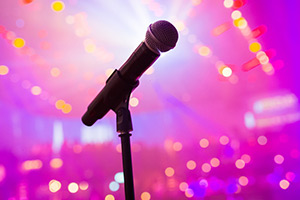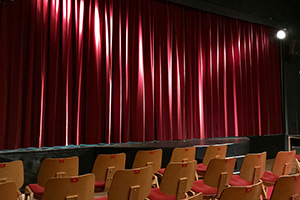Physicality in stand-up comedy: What should I do with my hands?
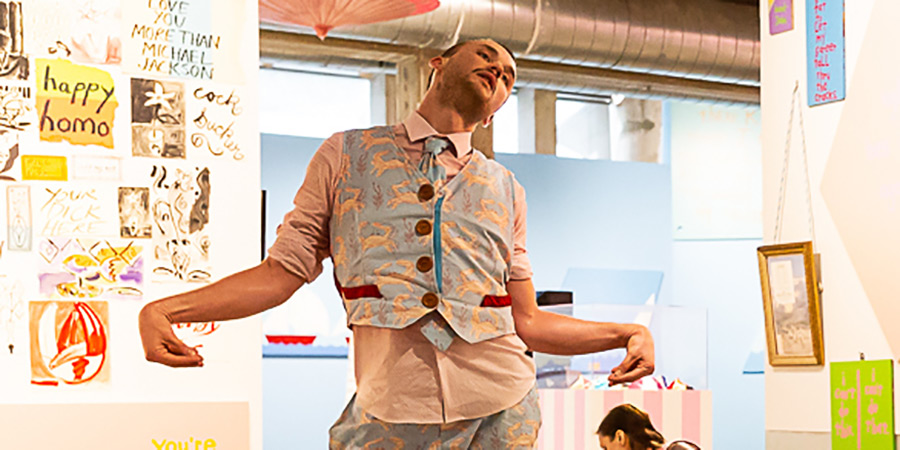
Sam Burkett is an award-winning choreographer, movement director, theatre-maker, and comedian. In this article they talk about the importance of stand-up comedians thinking about their physicality at the same time as verbal material.
When I speak to stand-ups about their stage presence or physicality, they often give excuses: "I'm just an awkward person", "I've been meaning to take a clowning course", or "I'm British". It can be incredibly daunting to receive feedback on your set that isn't directly about your jokes, but taking the time to consider how and why you are moving on stage can make a world of difference to your performance.
Here are a few bits of advice if you want to start working on your physicality, but don't really know where to start:
Get in your feelings
When considering your physicality on stage, there's a temptation to try and make any movements 'make sense'. The problem is that movement doesn't make sense in the same way that words do, so you can't refine them in the same way. Physical expression doesn't function like words. While words give you information and context, our movements help enhance the emotional undercurrent of what we're saying.
Instead of trying to make your body language match a joke, think about what emotion your joke is tapping into: yawning as you talk about someone boring, or looking down and swinging the mic cord if you're discussing being bashful or shy. Connecting your physicality to your emotions helps an audience stay invested in your performance.
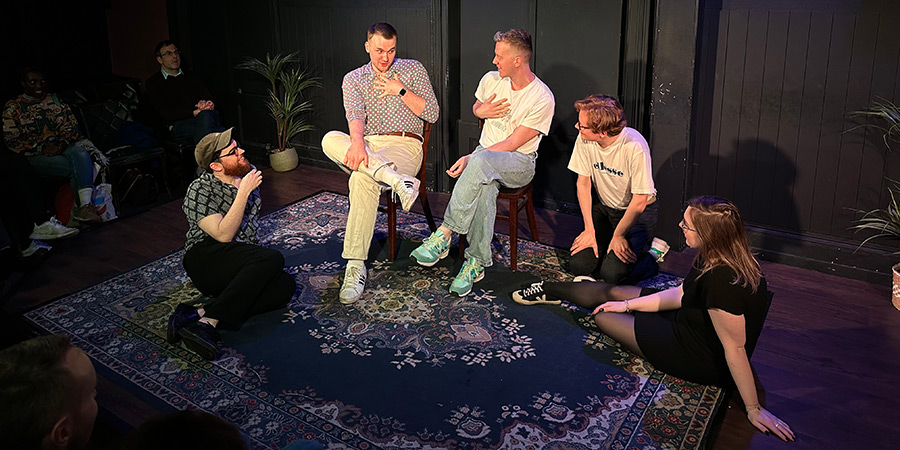
Standing still is a choice
There are plenty of times in your set where stillness is the best movement choice, but for many stand-ups they never really settle on stage. Have you ever seen someone doing a set and they are swaying back and forth, or hugging the wall behind them as if they are trying to get as far away from the audience as possible? Taking the time at the start of your set to find a strong home position is really important as it provides an anchor for your whole set.
That being said, standing frozen in one spot is not ideal either. It can cause you to hold a lot of tension throughout your body and that can make the audience feel tension as well. Instead imagine that your pelvis and feet are extremely heavy. The rest of your body can move freely, but feeling the weight in these areas can help you stay more grounded on stage.
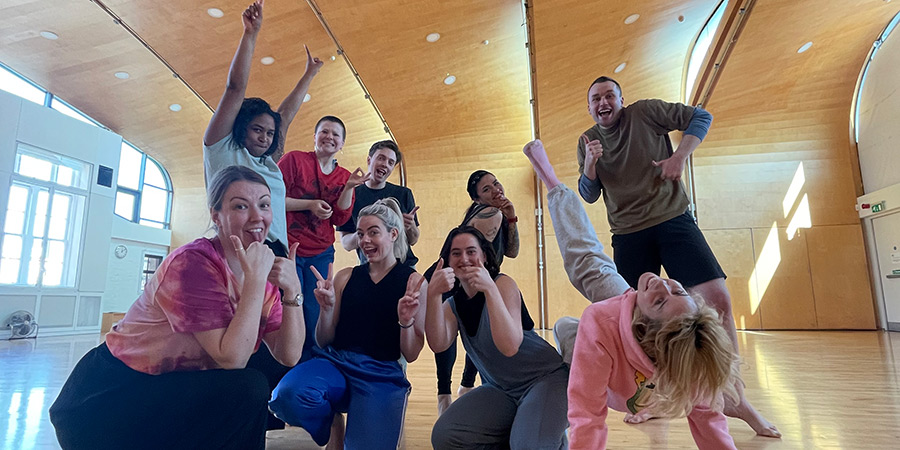
Overdo it, then rein it in
Many stand-ups fear moving too much onstage, but usually, the issue is that their movement is unclear. If you feel like your joke could use something physical, try the most over-the-top movement you think might work, and then figure out what elements of that movement you can cut back. As you work on your set, making big physical choices makes it easier to understand what the audience responds to so you can adjust accordingly.
For example, if you're telling an anecdote with lots of different characters, start by giving each one their own posture and way of moving, and fully act out the story. Through this, you'll figure out which moments feel better, which moments get bigger laughs, and you can determine which characters need more physical context and which ones need less. You'll never know unless you push yourself at the start.
Ultimately, developing your stage presence requires work, just like any other part of your set. If this still seems daunting, consider working with a movement director. They can help shape your physicality and stage presence much like a director shapes the narrative of your show.
If you want to learn more about how to apply this advice and develop your physicality, you can attend my upcoming workshop "Own the Stage: Physicality and Stagecraft for Stand Up Comedy" at 2Northdown on 12 November 2023 from 11:00-16:00.
This article is provided for free as part of BCG Pro.
Subscribe now for exclusive features, insight, learning materials, opportunities and other tools for the British comedy industry.



